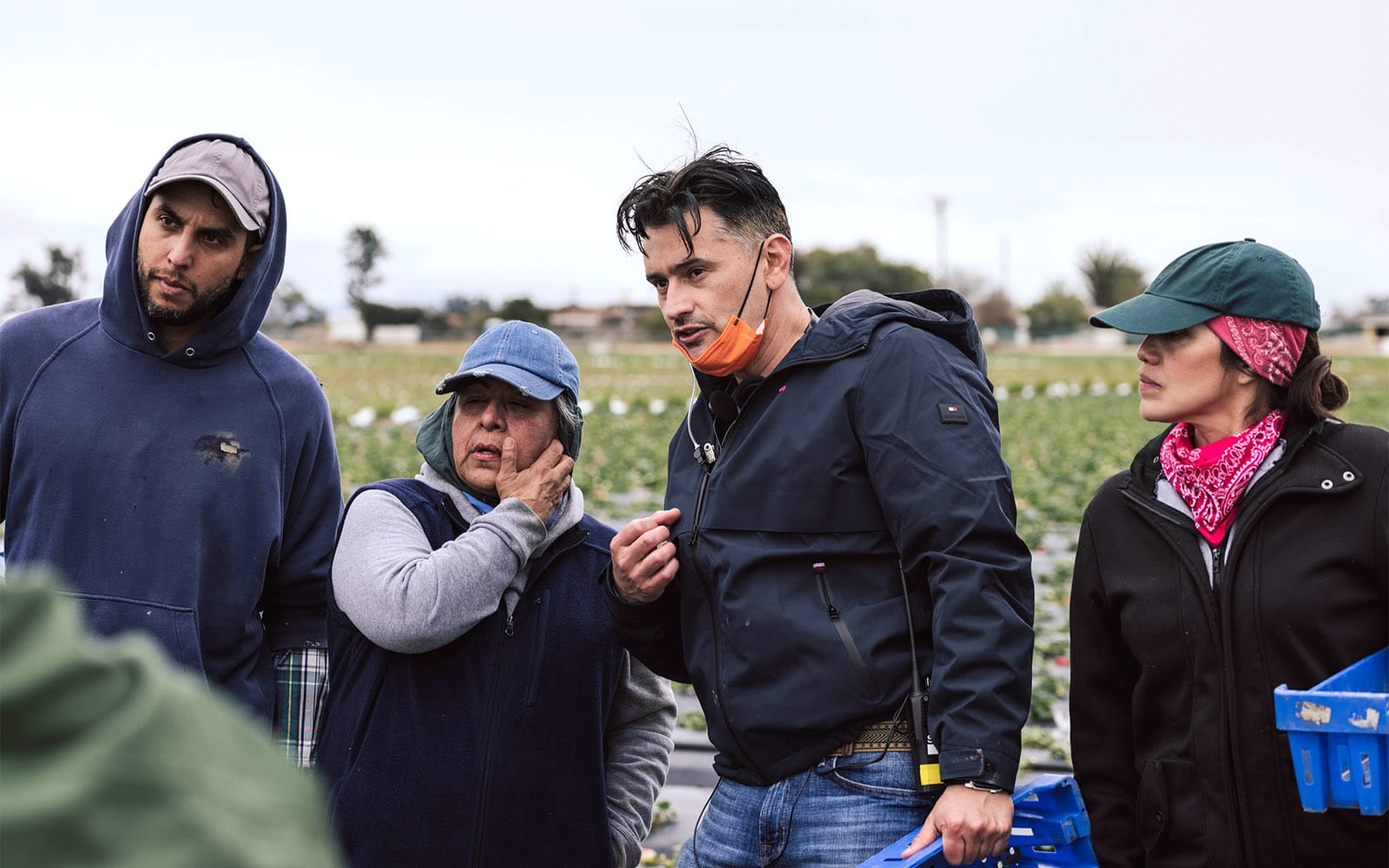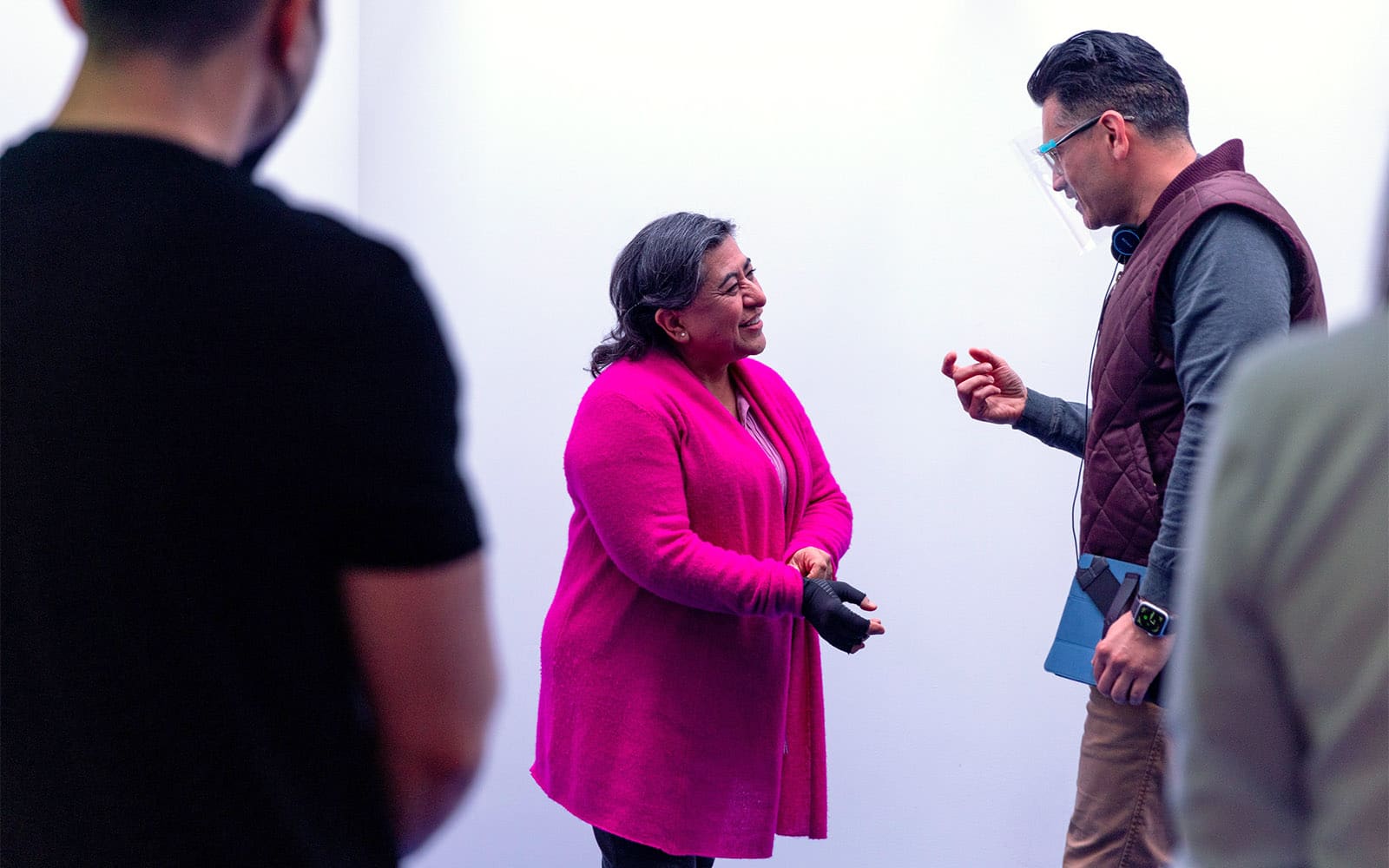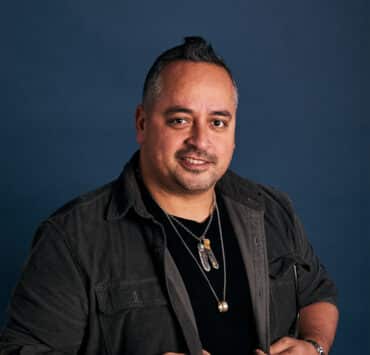|
Getting your Trinity Audio player ready...
|
Miguel Angel Caballero is the definition of a true multihyphenate: writer, producer, and director.
As the son of farm workers, he grew up traveling back and forth from Mexico to the US. He would stay with his grandparents in Pauma Valley in San Diego County while his parents would go to work while in the US. Caballero recalls a fondness for storytelling that began at a young age.
One of his most precious memories was when he would translate his grandmother’s favorite show, The Little House on the Prairie, to her every day at 5:00 p.m. His English was limited, so he had to improvise a bit. “I often had to invent storylines on the spot, weaving my own tales of what I thought was happening by reading the actor’s emotions,” he explains. “The joy in my grandmother’s eyes as she followed along with my versions of made-up stories was priceless.”
It was Caballero’s father who played a strong part in his love for the craft. His father, too, was a lover of entertainment and the arts. He created a makeshift theater attached to their house in Mexico—complete with a dome-like structure, a large white wall, and two 35mm projectors. It served as an actual theater that was attached to their home.
“This disconnect between the roles I was offered and the stories I knew were possible played a significant role in my decision to transition from acting to filmmaking.”
Miguel Angel Caballero
“As a child when I was supposed to go to sleep, I would open my bedroom curtain and see my mother selling concessions, and beyond her, an audience and a massive screen where a movie was being projected,” he recalls. “I don’t remember the exact movies that played, but I remember a collective laughter, gasp, and experience the audience shared. That is when I understood the power of storytelling. And I remember thinking to myself, I want to do that. I want to entertain people.”
By the time he was thirteen, Caballero knew he wanted to act. His parents would drive him from the home they had settled in Oxnard, California, to Los Angeles for auditions. This journey of developing different characters and worlds only strengthened his love for the arts. But it wasn’t such an easy road that he was met with. His roles were limited, which seemed to be a common thread for young Latino actors in the industry.
“I encountered a recurring challenge: the roles available to me were often steeped in stereotypes and did not reflect the rich, nuanced experiences of my community or my own identity. This disconnect between the roles I was offered and the stories I knew were possible played a significant role in my decision to transition from acting to filmmaking,” he explains.

Eight years ago, he made the decision to step away from acting and dedicate himself to shaping the narratives he felt were missing in the films of today. Since then, he has committed himself to writing, directing, and producing stories that authentically represent his experiences growing up as a queer Mexican American.
Caballero’s choices in his creative work are both personal and deliberate. They are guided by his commitment to authenticity and the desire to reflect the diversity of his community. This commitment stems from a recognition of the underrepresentation and misrepresentation of queer and Latine voices in mainstream media. “By choosing to focus on stories that resonate with my community, I aim to create a space where our experiences are not only seen but felt deeply and portrayed with the complexity they deserve,” he says.
“I trust my intuition and the emotional impact a story has on me,” he continues. “If a narrative stirs something within, if it feels urgent and necessary, that’s a strong indication that it holds the potential to resonate with audiences on a meaningful level. This gut-driven approach has led me to work on films like my most recent project, The Ballad of Tita and the Machines, which tells a sci-fi story through the lens of a working-class field worker.”
“As a queer filmmaker, I understand the importance of visibility and the power of seeing one’s experiences reflected in film and television.”
Miguel Angel Caballero
This short film allowed Caballero to merge genre storytelling with deeper social issues intertwined with elements of queer identity and earn nearly twenty industry accolades along the way, including the 2023 Imagen Award. This award had even more meaning to him as he had earned it once before in 2021 for an earlier film called Acuitzeramo, which was acquired by Max.
Acuitzeramo is a poignant exploration of homophobia in a small town, addressing the challenges faced by LGBTQ+ individuals in conservative, often closed communities. Through this film, he aimed to highlight the resilience of queer people in a small town and the importance of empathy and understanding in overcoming prejudice.
“Incorporating LGBTQ+ elements into my films is crucial because it reflects the reality of our community,” he explains. “As a queer filmmaker, I understand the importance of visibility and the power of seeing one’s experiences reflected in film and television. It’s not just about representation for its own sake but about telling stories that honor the truth of our lives.”

What’s next for the multihyphenate? Caballero and his writing partner, Luis Antonio Aldana, are currently adapting a sci-fi novel for television for Ley Line Entertainment. They also want to expand their company, Cabaldana Alchemy, to tell not only their stories but also the stories of other Latine writers, directors, and producers. “We envision our company as a catalyst for change, using our platform to inspire future generations of filmmakers to tell their stories,” he explains.
A multihyphenate that wants to develop other multihyphenates? The LGBTQ+ Latino community is ready for its close-up.

